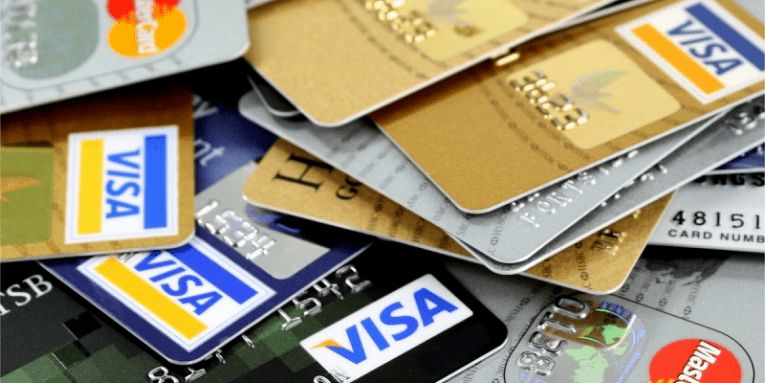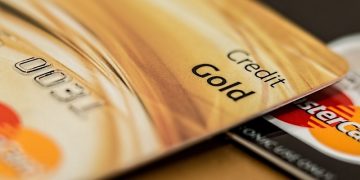Coronavirus Offers an Opportunity for Schemers to Perform Credit Card Fraud, Experts Say

It doesn’t matter whether you’re still cooped up at home or if you’re already frolicking back and forth, your usual routine back to normal. You must’ve felt the effects of COVID-19, and we’re going to have to live with some of the long-term implications for quite a while.
Changes like a flexible working schedule and easy adjustment to working from home might be something that we welcome with our open arms. However, with upheaval comes vulnerability, and it also means that all types of cybercrime are on the increase, too. You might not even notice how you can become a victim of credit card fraud, and we’d like to use this blog post and raise awareness on the issue.
Table of Contents
Credit card fraud on the rise
Countries might be shutting down their economies to curb the spread of COVID-19, but that only encourages fraudsters to come up with new ways to steal our money. According to Fidelity National Information Services Inc. (FIS), compared to April 2019, the volume of attempted fraudulent transactions in the United States rose by 35% in April 2020. Of course, it doesn’t mean that every single attempt is successful, but it clearly shows how eager cybercriminals are to make use of the confusion and chaos induced by the COVID-19 pandemic.
The main problem that is caused by the surge in credit card fraud attempts is that overall, the amount of credit card purchases has been going down due to the slowing economy and the fact that millions are out of work. As a result, customers have stopped borrowing because they can no longer make their monthly payments. In such a situation, credit card fraud can be devastating because it could lead to high losses and high costs for both card issuers and consumers. Due to such risks, it is important to learn more about the issue and the ways to protect oneself from malicious frauds.
Phishing emails and credit card fraud
Phishing emails are often linked to credit card frauds, and they are also something that we can easily block or avoid when we have enough knowledge about it. Emails that are part of the fraud scheme will try to attract your attention.
And it is surely clear that your inbox must be full of all sorts of COVID-19 updates. Maybe your favorite restaurant is telling you that they’re open again and you can have your meals again. Maybe your local drugstore is giving you tips on the best ways to improve your immune system. Either way, you must have tons of emails that come with “Coronavirus” or “COVID-19” in their subject line, and it might be challenging to filter them all.
However, when it comes to phishing emails linked to credit card fraud, these messages will usually ask for your financial details point-blank, or they will ask you to confirm your personal information by clicking an outgoing link. The truth is that instead of “confirming,” you would be forced to fill out the information yourself thus, giving it away to cybercriminals.
Also, if the email message comes with an attachment or a hyperlink that supposedly shares information about coronavirus, it’s probably smart to just delete the email at once. What’s more, while phishing emails can be linked to credit card fraud, they are also often used to distribute malware. Hence, if you do not take this issue seriously, you could get infected with ransomware, and that could result in an ultimate file loss. For more information on how phishing campaigns can be used to spread malware, you can check out our report here.
Charity scams
Phishing emails aren’t the only attack vector that can result in credit card fraud. Coronavirus opened a lid of a huge can of worms that’s been threatening to spill out for quite a while now. And there are tons of charity funds out there that are promising to help those in need, to alleviate the tough situation. You probably know that Black Lives Matter all the time, but you feel more inclined to donate for the cause right now, and it’s great if you do, but please make sure that the fund you’re donating to is legitimate.
Charity scams are on the rise as well, and we have already discussed the “Vote Anonymous about Black Lives Matter” scam before. But it’s clearly just one of the many frauds going around under the disguise of a charity campaign. Thus, you have to verify the authenticity of a charity fund before you make a donation. It is especially relevant if you receive an email that urges you to donate. Double-checking might take some time, but it’s always better to be safe than sorry.
Credit card activity monitoring
We all receive reports on our credit card activity, but you can be pro-active and check the activity yourself every single week. Your credit card company will definitely give you such an option where you can check your account and how much has been spent. If you see some discrepancies in your credit card activity, it will be the first sign that you have to freeze your credit. Freezing your credit will stop the cybercriminals from flushing out your funds and leaving you in debt. However, don’t forget that if you have a mortgage payment coming up, you will have to unfreeze your funds for that because freezing your credit means that NO ONE can access it.
All in all, it is not that complicated to protect yourself from credit card frauds, but the point is that you have to be wary of various attempts to steal your personal information. Some of the most basic security tips that should help you improve your personal information security include using password managers and multi-factor authentication to secure your accounts. You might feel that such measures are pretty basic, but everything starts with the first few steps. Even though the situation right now might seem bleak, by walking that extra mile to secure your financial funds and your personal information, you would be able to avoid multiple frauds that try to reach you every single day.








